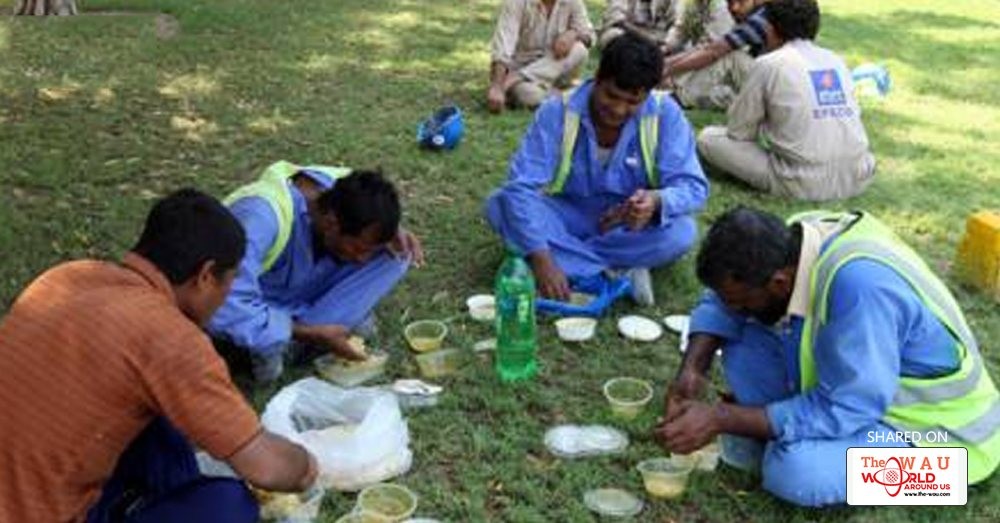A mandatory insurance scheme for Indian blue-collar workers going abroad has many shortcomings, making it unattractive for them, experts told Gulf News.
The Pravasi Bharatiya Bima Yojana (PBBY), an insurance scheme for non-resident Indians originally introduced in 2003, is the only social security scheme for Indians since the Government of India scrapped the Mahatma Gandhi Pravasi Suraksha Yojana (MGPSY), a pension and life insurance fund.
However, the PBBY as an insurance scheme cannot meet the demand from workers for a saving and pension scheme as served by the defunct MGPSY, experts based in the UAE said.
The PBBY offers a Rs1 million (Dh55,000) insurance cover for accidental death and repatriation costs, in the event of illness or job termination; and Rs50,000 (Dh2,750) medical insurance cover for the family in India and some other protection at a premium of Rs275 for a two-year policy.
The scheme is mandatory for blue-collar workers holding Emigration Clearance Required (ECR) category passports. Under this category, workers need emigration clearance from Indian authorities before they take up employment in 17 foreign countries, including the Gulf. India issues ECR passports to those who have not passed grade 10.
About 65 per cent of an estimated 2.8 million Indians in the UAE are blue-collar workers and most of them are in the ECR category.
K.V. Shamsuddin, chairman of Pravasi Bandhu Welfare Trust, who has been conducting financial literacy programmes among Indian workers in the Gulf for many years, said blue-collar workers needed a saving scheme that should give them a regular income when they return home.
“Ninety-five per cent of them will find it difficult to have a livelihood once they reach back home. They need a pension scheme that should give a regular pension as and when they go back home permanently, not after the age of 60 as most of the schemes offer. Insurance could be a complementary benefit only, the real need is pension,” said Shamsuddin, who is also a director at Barjeel Geojit Securities LLC in Dubai, an international brokerage firm.
He said the pension scheme that was discontinued served most of these purposes but the government did not promote it among workers properly. Only 300 workers had subscribed to the scheme in four years.
An insurance industry expert said the condition that workers have to enrol in the insurance scheme, PBBY, 14 days before leaving India is too stringent. “This could be extended up to three months,” said Mustafa O. Vazayil, managing director of Gargash Insurance, an insurance brokerage firm in Dubai. Also, the sum insured under the scheme for some important purposes is inadequate. For example, Rs75,000 (Dh4,130) for hospitalisation, Rs25,000 (Dh1,376) for maternity and Rs30,000 (Dh1,652) for legal cases are not at all enough in a foreign country, said Vazayil, who is also a director of the Non-Resident Keralites’ Affairs Department (NORKA-ROOTS) of South Indian state of Kerala.
Sabu Damodaran, a senior legal consultant in Abu Dhabi, said many legal provisions of the PBBY were not in favour of workers. One of the clauses stipulates that the worker should produce a certificate from the relevant ministry of the foreign government to claim the costs of a legal case, which is not easy for a worker.
Arbitration, a form of alternative dispute resolution, as a system to solve dispute is also not in favour of the worker. “It is not easy for a worker to appoint an arbitrator, which is a technically and financially difficult process. Instead, a committee consisting of representatives of workers’ unions and other experts should be constituted to resolve disputes,” Damodaran suggested.
Gulf News raised these concerns about the scheme with the Indian Ministry of External Affairs and Indian insurance companies marketing the scheme, but no response was available until press time.
Concerns over insurance scheme
Workers have to enrol in the scheme 14 days before leaving India. A delay in travel will nullify the insurance contract.
Scheme offers only insurance protection, no saving or pension scheme for workers who need them desperately.
Sum insured under the scheme for legal cases is inadequate in a foreign country.
Getting a certificate from a foreign government to claim Rs30,000 (Dh1,652) for legal cases is not easy for a blue-collar worker.
Share This Post















